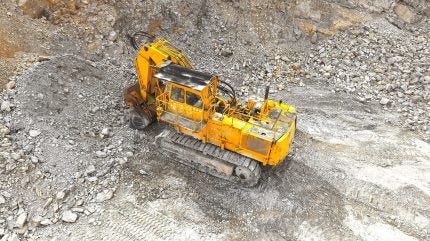Sign up for daily news updates from CleanTechnica on email. Or follow us on Google News!
For decades, Japanese automakers dominated the new car market in Thailand. But now Chinese electric vehicle manufacturers are stampeding into overseas markets, and Thailand is one of the first countries to experience the sudden influx of China’s automobile brands. The influx of electric cars from China is reshaping its car industry.
The arrival of Chinese-made electric cars is evident everywhere in Thailand. According to the New York Times, billboards all across the country are filled with advertisements for Chinese cars. Land prices are soaring because so many new factories are being built in that country. Aion, a Chinese manufacturer unknown to many in Europe and North America, actually went so far as to adapt its cars for the local market by making the air conditioning systems more powerful to deal with the heat in Thailand, and strengthening the chassis to stand up to Thailand’s poor roads.
The Japanese manufacturers for years have rested on their laurels as producers of pretty good conventional cars that are affordable and reliable. Most of those companies assumed they could just keep on doing what they have already done and everything would be fine. Japanese automobile brands accounted for 86% of new car sales in 2022. That figure dropped to 75% last year, with China’s BYD, Great Wall Motor, and SAIC Motor grabbing significant market share.
Thailand is small in comparison to China, but it has the biggest new car market in Southeast Asia. Known as the “Detroit of Asia,” it serves as a regional manufacturing hub, and its proximity and strong trade ties to China allow Chinese cars to be imported quickly and inexpensively. “It’s a beachhead market,” said Tu Le, a managing director of the consultancy Sino Auto Insights. “It suits a lot of Chinese brands because of the lower price point.”
Thailand Set Its EV Goal In 2021
In 2021, Thailand said it wanted electric vehicles to account for 30% of its automobile production by the end of the decade, an ambitious goal that seemed unattainable without Chinese companies. Its government also put in place subsidies and tax breaks to spur demand. What has happened to those Japanese companies might be a harbinger of what could happen in North America and Europe if the barriers to Chinese cars are lowered.
Rather than building tariff walls around its auto industry, Thailand has welcomed the Chinese manufacturers. As a result, sales of popular Japanese brands such as Nissan, Mazda, and Mitsubishi have plummeted as consumers bought new electric cars from Chinese manufacturers instead. Dealers that had worked with Japanese and American automakers for decades are now changing their showrooms to make way for Chinese vehicles.
The push into exports is the next phase in Beijing’s long term strategy to focus on “new energy vehicles” and upend the balance of power in the automobile industry. Thanks to its aggressive support at all levels, Chinese companies have become quite adept at mass producing electric vehicles. They have established dependable supply chains, which has allowed them to reduce prices
Six Chinese electric vehicle companies are already selling cars in Thailand, and three more entrants are coming this year. BYD, Aion, Great Wall, Hozon Auto’s Neta and Chery are among those that have opened or are building factories in Thailand. “When the Chinese see an opportunity, they just go,” Wirat Tatsaringkansakul, deputy secretary general of the Thailand Board of Investment, said at an automotive conference for Chinese suppliers last month.
Japan’s dominance over Thailand’s automotive industry dates to the 1960s when Nissan Motor and its local partner, Siam Motors, opened the country’s first car factory. But last year, BYD sold more cars in Thailand than Nissan did, even though the Chinese automaker had only three models available. V Group Cars, a dealer network with 44 showrooms, said a majority of its locations sold only Chinese brands. The dealer network stopped working with Suzuki and converted its Mazda, Mitsubishi, and Ford showrooms into sales locations for Aion, Neta, Chery, and Zeekr. Mazda sales “plummeted in recent years,” said Pananya Jira-alongkorn, vice president of V Group. Thai consumers were more interested in electric vehicles, she said, and Mazda had “none to offer.”
Hyundai To Build An EV & Battery Factory In Thailand
The Chinese are not the only ones who see opportunities for electric cars in Thailand. According to Electrive, Thailand’s Board of Investment has approved a plan by Hyundai to construct a factory for making electric cars and batteries in the country, saying that the new project “supports Thailand’s EV 3.5 package, enhancing the nation’s role as an EV hub.” The new facility will be located southeast of the capital city of Bangkok.
“Hyundai’s entry in Thailand’s EV sector is a very positive development, confirming the attractiveness of Thailand as both a manufacturing base and an important market,” said Narit Therdsteerasukdi, Secretary General of the BOI. “Thailand’s strong existing supply chain will allow Hyundai to source not less than a third of the raw materials and parts it needs from within Thailand, thus supporting the local industry.” There are reports that Kia may also have plans in the works to establish a manufacturing facility in Thailand.
Chinese companies such as Neta, Changan, and the MG4 are also gearing up to produce electric cars in Thailand. There are also a number of battery factories under construction by Chinese battery companies such as Eve Energy, SVOLT, and Gotion High-Tech. Just last month, BYD opened its first factory plant in Thailand — its first in Southeast Asia. There have been reports that the Thai government is in talks with Kia, which may also be interested in setting up production facilities in the country.
Tesla Bows Out
While lots of companies are piling into Thailand, The Nation, a Thai news source, says Tesla has decided against doing so. It reports that Tesla has scrapped plans to set up an electric vehicle manufacturing plant in Thailand and will focus solely on charging stations, according to a source at Government House. The decision follows the layoffs of a team of Tesla executives that visited Thailand late last year. “Tesla is currently only discussing charging stations, with the factory plans suspended not just in Thailand but worldwide. They are not proceeding in Malaysia, Indonesia, or anywhere else except for China, America, and Germany,” said the source.
Prime Minister Srettha Thavisin announced last November that Tesla was poised to make Thailand a hub of its EV manufacturing. The announcement came after he held several meetings with Tesla executives both in the US and Thailand. Srettha toured Tesla’s Fremont Factory in California during his US visit for the 30th APEC Economic Leaders’ Meeting in November, meeting with Tesla executives and posing with a Cybertruck.
He and Pheu Thai party leader Paetongtarn Shinawatra hosted senior Tesla executive Rohan Patel at the Yi Peng festival in Chiang Mai on November 28. At around the same time, the prime minister announced that Tesla was surveying three potential factory sites in Thailand and was expected to announce investment of over US$5 billion in the first quarter of this year. However, Tesla has now decided to cancel its investment plan in Thailand after disbanding its executive team. The decision is part of Tesla’s withdrawal of investment across Asia and beyond.
It is hard to say what is in the mind of Musk these days, but he seems to be distancing himself from Tesla, the car company, as he digs deeply into AI, autonomous cars, and telling others what they should believe. Just this week, he sued a number of major corporations, claiming they had hatched a conspiracy among themselves to not advertise on X. The upshot of that is that Musk apparently believes people have an obligation to support his X boondoggle and if they don’t, they are part of some grand conspiracy designed to take him down.
I am not a marketing major, but suing people because they decline to do business with you was not something that was taught during any sales training seminars I ever attended. Now he is engaged in a war of words with the UK Prime Minister over the riots that have taken place in that country recently. Musk shows every sign of becoming dangerously unhinged, and for those of you who will point to his past accomplishments — which are legion — as proof of his genius, I can only ask, “What has he done for us lately?”
The Takeaway
The Thailand experience makes it abundantly clear that the Chinese auto industry will have a significant impact on any domestic manufacturers. Just ask the Japanese automakers what happened to them in Thailand when China came to town. The US and the EU have every reason to be concerned, and yet building tariff walls doesn’t seem like a long term solution. What is happening in Thailand gives us a glimpse of how big a problem electric cars from China can be, but provides few answers about what to do about it. Probably by 2030, some sort of détente will have occurred in the EV space, but what form it will take can scarcely be predicted based on the information we have available today.
Have a tip for CleanTechnica? Want to advertise? Want to suggest a guest for our CleanTech Talk podcast? Contact us here.
Latest CleanTechnica.TV Videos
CleanTechnica uses affiliate links. See our policy here.
CleanTechnica’s Comment Policy





